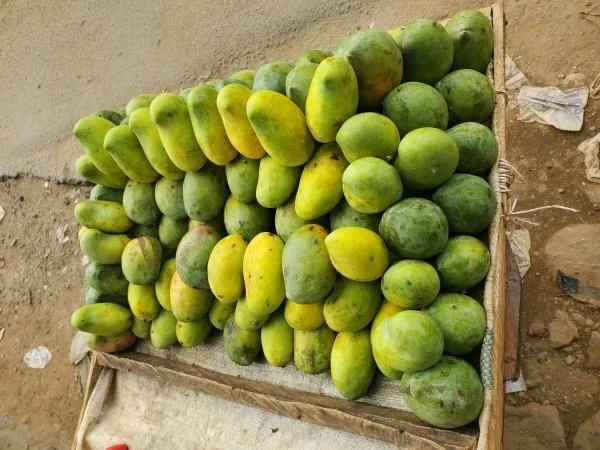Mango season in Nigeria is between February and June, depending on ecological zones, regions, and varieties of the fruit.
Mango is a fragile fruit that is seasonal and highly perishable; every year, the fruit is wasted more than it is consumed and utilized.
In developing countries, farmers continue to employ the traditional method of shaking trees and using sticks to harvest the fruits. This results in bruised and broken-skinned fruits. The fruits are damaged after a few days and, in most cases, tossed out.
Mangoes are rich in fiber, vitamins, and other micronutrients. And therefore are appreciated by Nigerians. During this season, the fruits are sold at give-away prices because of their perishable nature and lack of storage.
Nigeria is ranked the world’s 10th largest producer; about 800,000 metric tons of the fruit are produced yearly, contributing about three percent to the world's total production.
Therefore, one of the main reasons to consider investments in mango value addition is to prevent post-harvest losses. Poor value chain development, low industrialization, the non-availability of storage devices, and inadequate electricity also contribute to the loss of tomatoes, oranges, leafy vegetables, and many other perishable crops in Nigeria. These products become scarce and therefore outrageously expensive during off-seasons.
The traditional methods of harvesting mangoes, such as shaking the trees, climbing to pluck, and throwing the fruits on the ground, can damage the fruit, which increases water loss, oxidation, the release of stress ethylene, and broken skins where pathogens can enter and decay the fruits. To resolve this problem, small-scale farmers must learn to adopt technologies like harvesting poles and nets that will allow the fruits to land softly during harvesting.
Plastic crates for packaging and cooling service Trucks are best suited for the transportation of perishable fruits, offering greater air circulation and reducing respiration heat.
As the market is not able to absorb all of the fruits in Nigeria. Losses are great. Surplus fruit rots, but with new technologies such as ColdHubs cooling unit services, it can be used to extend shelf life.
With the ColdHubs 100-ton facility, produce like mangoes can be stored for more than three months with decreasing temperatures (up to 15 oC below ambient temperatures) and increasing humidity (up to 50 percent above ambient), conditions that substantially improve vegetable shelf life, increase the marketing period, reduce food loss, and ultimately increase income for farmers.
Unlike conventional refrigerators, these cooling systems do not require electricity to run, so farmers can pay a very low amount to store their produce in these facilities.
Food processing technologies can add value by transforming ripe mangoes into juice, pulp, concentrate, and dried chips, allowing products to reach distant local and international markets. Adoption and use of technology such as a solar tunnel dryer, a green-house dryer, and a dryer have been on the rise. These facilities are used not only for dry fruits but also vegetables and grains. The dried products have a longer shelf life, ensuring their availability even during the off-season. Fruit pulp has a longer shelf life compared to fresh mangos, and this product can be used to make drinks, jams, and concentrates, among others, during the lean season.
Government and non-government organizations in Nigeria should train smallholder farmers and other farmer groups on the need to embrace technologies and different equipment for processing and fruit harvesting.
In doing this, it will reduce losses in the mango value chain and boost its economic impact on the country.
Small farmers can increase their income significantly by addressing their 30 percent product loss with the incorporation of these improved harvesting, post-harvesting, and food processing technologies, therefore boosting Africa’s economy and improving the quality of life of farmers.



